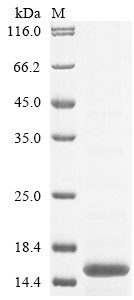Cookie-Einstellungen
Diese Website benutzt Cookies, die für den technischen Betrieb der Website erforderlich sind und stets gesetzt werden. Andere Cookies, die den Komfort bei Benutzung dieser Website erhöhen, der Direktwerbung dienen oder die Interaktion mit anderen Websites und sozialen Netzwerken vereinfachen sollen, werden nur mit Ihrer Zustimmung gesetzt.
Konfiguration
Technisch erforderlich
Diese Cookies sind für die Grundfunktionen des Shops notwendig.
"Alle Cookies ablehnen" Cookie
"Alle Cookies annehmen" Cookie
Ausgewählter Shop
CSRF-Token
Cookie-Einstellungen
FACT-Finder Tracking
Individuelle Preise
Kundenspezifisches Caching
Session
Währungswechsel
Komfortfunktionen
Diese Cookies werden genutzt um das Einkaufserlebnis noch ansprechender zu gestalten, beispielsweise für die Wiedererkennung des Besuchers.
Facebook-Seite in der rechten Blog - Sidebar anzeigen
Merkzettel
Statistik & Tracking
Endgeräteerkennung
Kauf- und Surfverhalten mit Google Tag Manager
Partnerprogramm

Bei Fragen nutzen Sie gerne unser Kontaktformular.
Bestellen Sie auch per E-Mail: info@biomol.com
Größere Menge gewünscht? Bulk-Anfrage
Bestellen Sie auch per E-Mail: info@biomol.com
Größere Menge gewünscht? Bulk-Anfrage
Organism: Mus musculus (Mouse). Source: E.coli. Expression Region: 495-584aa. Protein Length:... mehr
Produktinformationen "Phospholipase A-2-activating protein (Plaa), partial, mouse, recombinant"
Organism: Mus musculus (Mouse). Source: E.coli. Expression Region: 495-584aa. Protein Length: Partial. Tag Info: N-terminal 10xHis-tagged and C-terminal Myc-tagged. Target Protein Sequence: TGAGRYMPGS AGMDTTMTGV DPFTGNSAYR SAASKTVNIY FPKKEALTFD QANPTQILGK LKELNGTAPE EKKLTEDDLV LLEKILSLIC. Purity: Greater than 85% as determined by SDS-PAGE. Endotoxin: Not test. Biological Activity: n/a. Form: Liquid or Lyophilized powder. Buffer: If the delivery form is liquid, the default storage buffer is Tris/PBS-based buffer, 5%-50% glycerol. If the delivery form is lyophilized powder, the buffer before lyophilization is Tris/PBS-based buffer, 6% Trehalose, pH 8.0. Reconstitution: We recommend that this vial be briefly centrifuged prior to opening to bring the contents to the bottom. Please reconstitute protein in deionized sterile water to a concentration of 0.1-1.0 mg/mL.We recommend to add 5-50% of glycerol (final concentration) and aliquot for long-term storage at -20 °C/-80 °C. Our default final concentration of glycerol is 50%. Customers could use it as reference. Storage: The shelf life is related to many factors, storage state, buffer ingredients, storage temperature and the stability of the protein itself. Generally, the shelf life of liquid form is 6 months at -20 °C/-80 °C. The shelf life of lyophilized form is 12 months at -20 °C/-80 °C. Notes: Repeated freezing and thawing is not recommended. Store working aliquots at 4 °C for up to one week. Relevance: Plays a role in protein ubiquitination, sorting and degradation through its association with VCP. Involved in ubiquitin-mediated membrane proteins trafficking to late endosomes in an ESCRT-dependent manner, and hence plays a role in synaptic vesicle recycling. May play a role in macroautophagy, regulating for instance the clearance of damaged lysosomes. Plays a role in cerebellar Purkinje cell development. Positively regulates cytosolic and calcium-independent phospholipase A2 activities in a tumor necrosis factor alpha- or lipopolysaccharide-dependent manner, and hence prostaglandin E2 biosynthesis. Reference: "Large-scale cDNA analysis reveals phased gene expression patterns during preimplantation mouse development." Ko M.S.H., Kitchen J.R., Wang X., Threat T.A., Wang X., Hasegawa A., Sun T., Grahovac M.J., Kargul G.J., Lim M.K., Cui Y., Sano Y., Tanaka T.S., Liang Y., Mason S., Paonessa P.D., Sauls A.D., DePalma G.E. Doi H. Development 127:1737-1749(2000). Function: Plays a role in protein ubiquitination, sorting and degradation through its association with VCP (By similarity). Involved in ubiquitin-mediated membrane proteins trafficking to late endosomes in an ESCRT-dependent manner, and hence plays a role in synaptic vesicle recycling
| Schlagworte: | Plap, PLAP, Plaa, PLA2P, Phospholipase A-2-activating protein, Recombinant Mouse Phospholipase A-2-activating protein (Plaa), partial |
| Hersteller: | Cusabio |
| Hersteller-Nr: | EP018107MO1 |
Eigenschaften
| Anwendung: | Activity not tested |
| Konjugat: | No |
| Wirt: | E.coli |
| Spezies-Reaktivität: | mouse |
| MW: | 14.7 kD |
| Reinheit: | >85% (SDS-PAGE) |
Datenbank Information
| KEGG ID : | K14018 | Passende Produkte |
| UniProt ID : | P27612 | Passende Produkte |
| Gene ID : | GeneID 18786 | Passende Produkte |
Handhabung & Sicherheit
| Lagerung: | -20°C |
| Versand: | +4°C (International: +4°C) |
Achtung
Nur für Forschungszwecke und Laboruntersuchungen: Nicht für die Anwendung im oder am Menschen!
Nur für Forschungszwecke und Laboruntersuchungen: Nicht für die Anwendung im oder am Menschen!
Hier kriegen Sie ein Zertifikat
Loggen Sie sich ein oder registrieren Sie sich, um Analysenzertifikate anzufordern.
Bewertungen lesen, schreiben und diskutieren... mehr
Kundenbewertungen für "Phospholipase A-2-activating protein (Plaa), partial, mouse, recombinant"
Bewertung schreiben
Loggen Sie sich ein oder registrieren Sie sich, um eine Produktbewertung abzugeben.
Zuletzt angesehen

